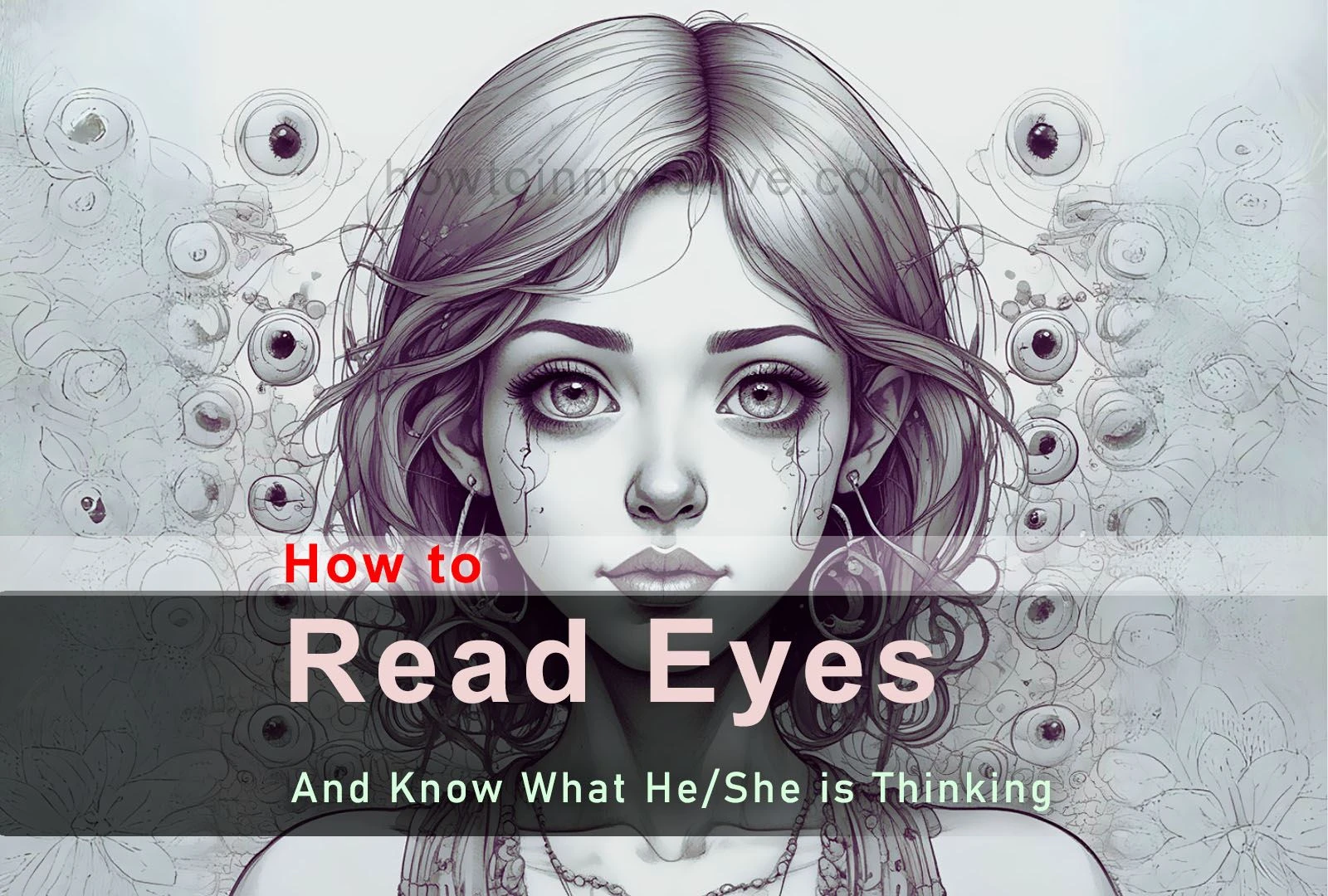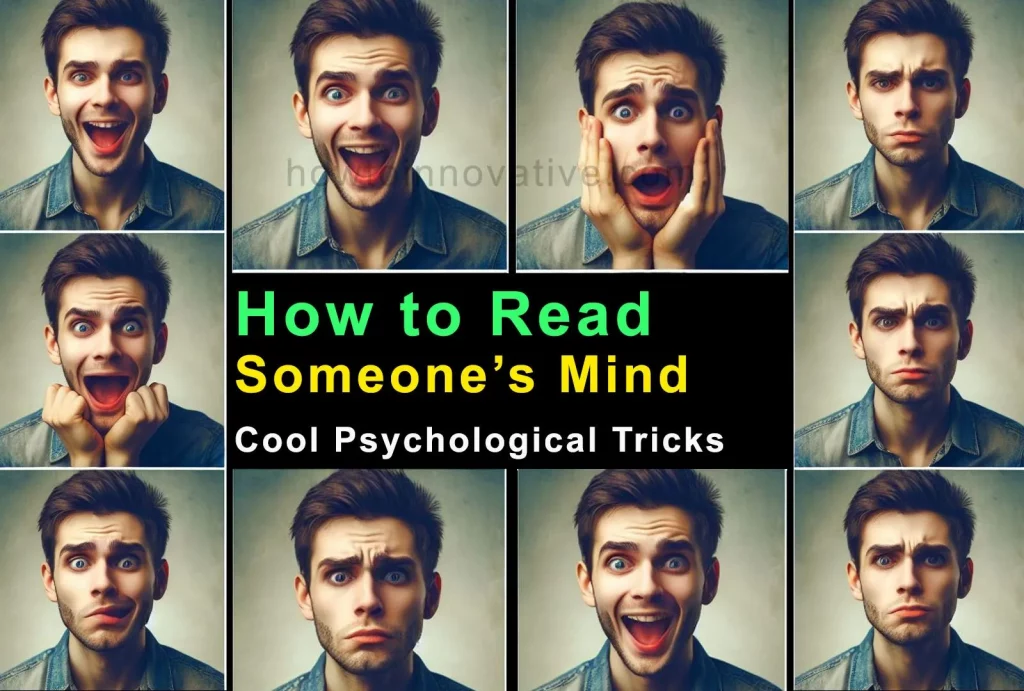Ever felt like you could almost hear what someone was thinking just by looking into their eyes? Reading minds might be a superpower, but learning to read eyes comes pretty close! The eyes are not just windows to the soul; they’re like super-powered emotion detectors. Reading eye movements and positions can give you some clues about a person’s thoughts and feelings. Here I’ll explore how to read eyes to know what he or she is thinking. Let’s dive in and uncover the secrets of eye language!
Table of Contents
Some Real-life Problems
You’re chatting with your friend, and suddenly, their eyes dart to the left. An awkward silence follows. Maybe you wanted to know if your friend really liked your new outfit or if they were just being polite. It’s awkward! We all wish we had a way to peek into others’ minds without them saying a word. But our eyes often give away more than we realize.
What do we Think?
Think about how much easier life would be if you could read the subtle clues hidden in someone’s eyes. No more second-guessing if your classmate actually understands the math problem you’re explaining, or if your sibling is truly excited about your plans.
Not knowing what someone is thinking can lead to misunderstandings and missed connections. It’s like trying to solve a puzzle with the missing pieces. But, what if you could fill in those gaps?
So How to read eyes
Learning to interpret eye positions and movements can help you understand people better, making your interactions more meaningful and insightful. Now I can show you some simple eye positions and movements so that you can understand and decode what people are thinking. Let’s break it down:
Eye Directions:
1. Looking Up to the Right
When someone looks up and to the right, they are usually constructing a visual image. This might mean they are imagining something or creating a scenario in their mind.
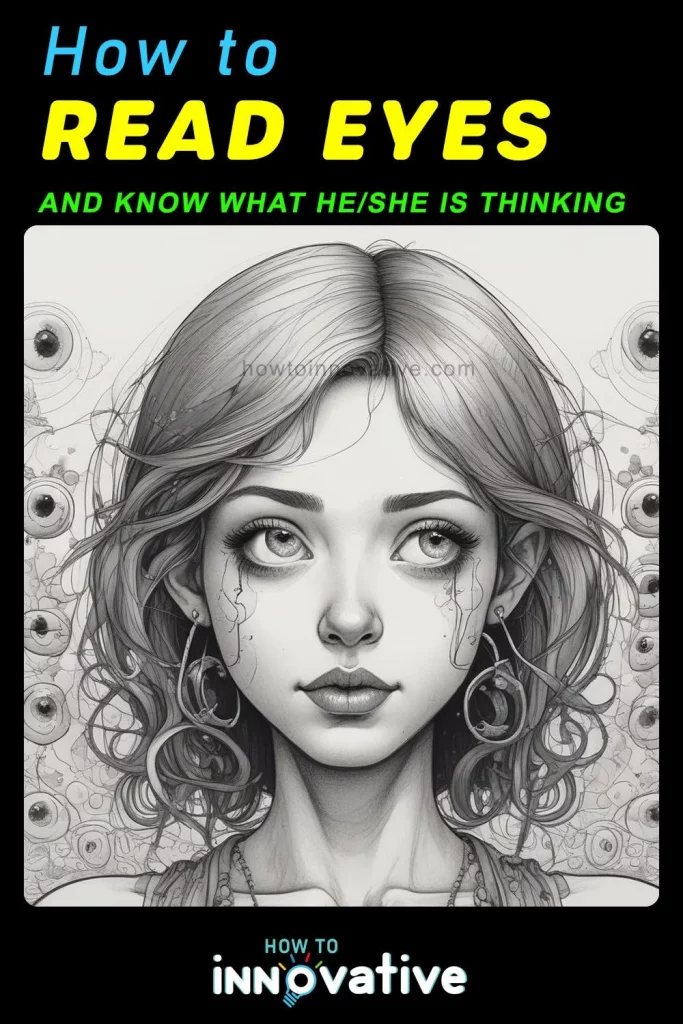
2. Looking Up to the Left
This direction often indicates recalling a visual memory. If you ask someone to remember their last birthday, they might look up and to the left as they try to visualize the event.
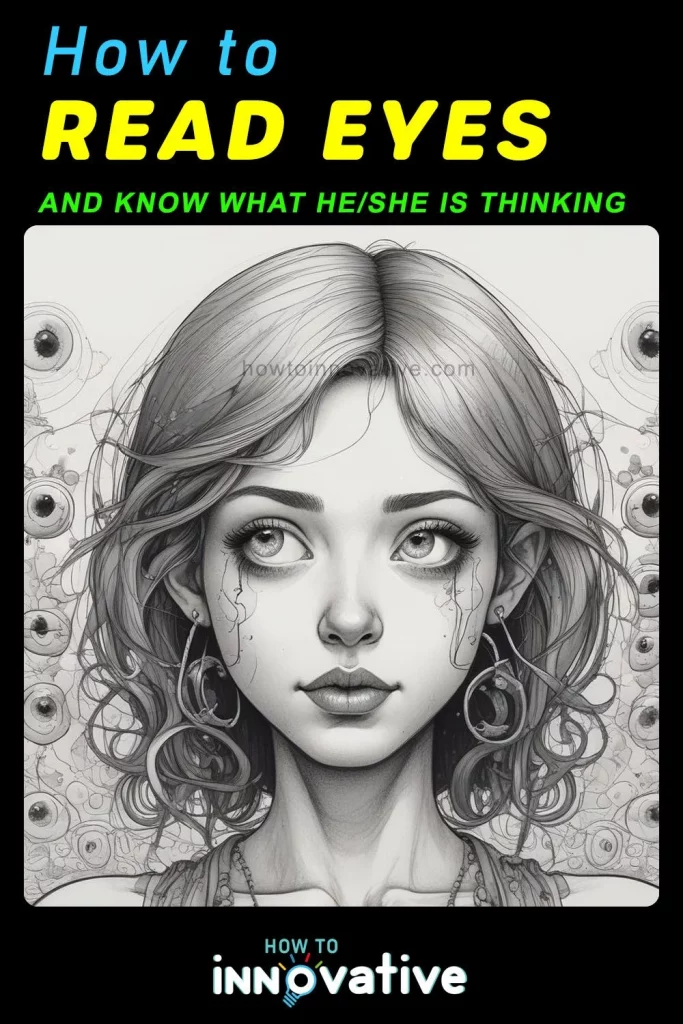
3. Looking to the Right
When someone looks directly to the right, it often means they are trying to create or imagine a new sound or song in their mind. This is called auditory construction.
For example, if you’re trying to come up with a new melody for a piece of music, you might glance to the right as you think about what it should sound like. This eye position is a sign that your brain is working on building or inventing something you haven’t heard before.
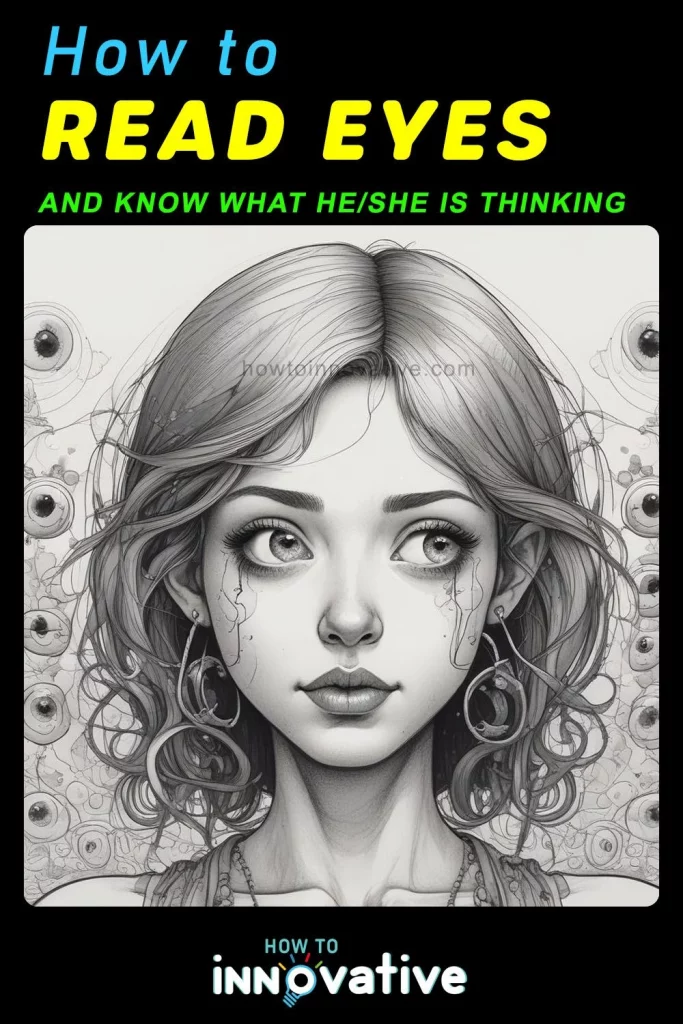
4. Looking to the Left
When a person turns their eyes to the left, it usually means they are remembering a sound they’ve heard before. This could be a piece of music, someone’s voice, or any other noise they’ve come across. It’s like their brain is searching through a mental library of sounds to find the one they’re thinking about.
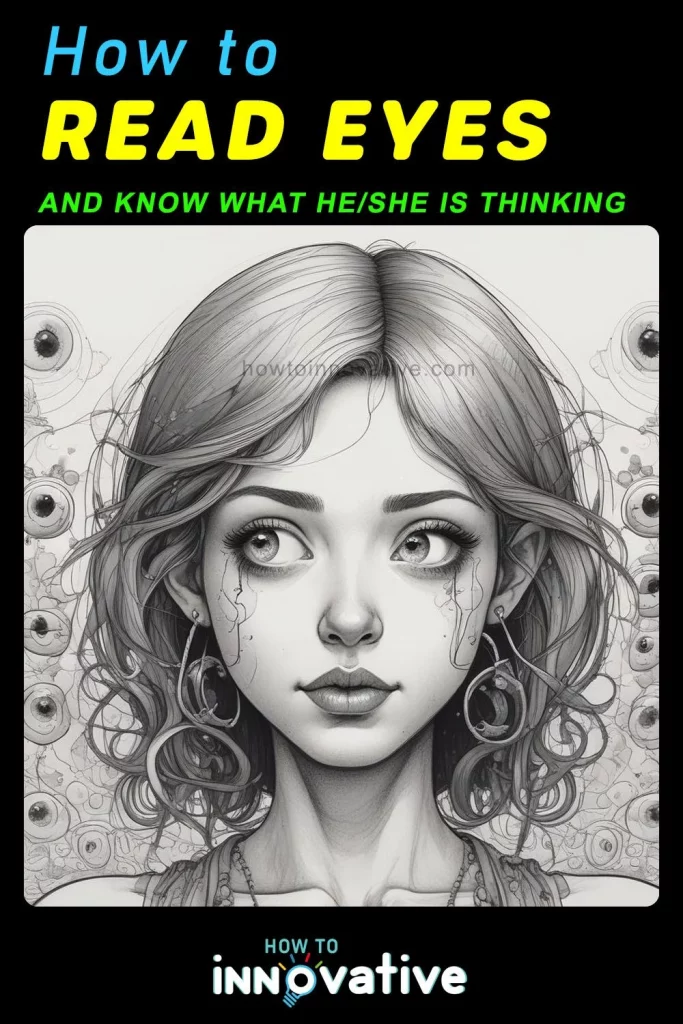
5. Glancing Down
When someone looks down, it might mean they are feeling either submissive or guilty. For example, in a classroom setting, if a student gets caught cheating on a test, they might looked down because they feel ashamed and don’t want to meet the teacher’s eyes.
Similarly, someone might glance down when they’re being scolded by their parents, showing that they feel sorry or defeated. Looking down can be a way of avoiding eye contact, which might suggest they have something to hide or are feeling bad about themselves.
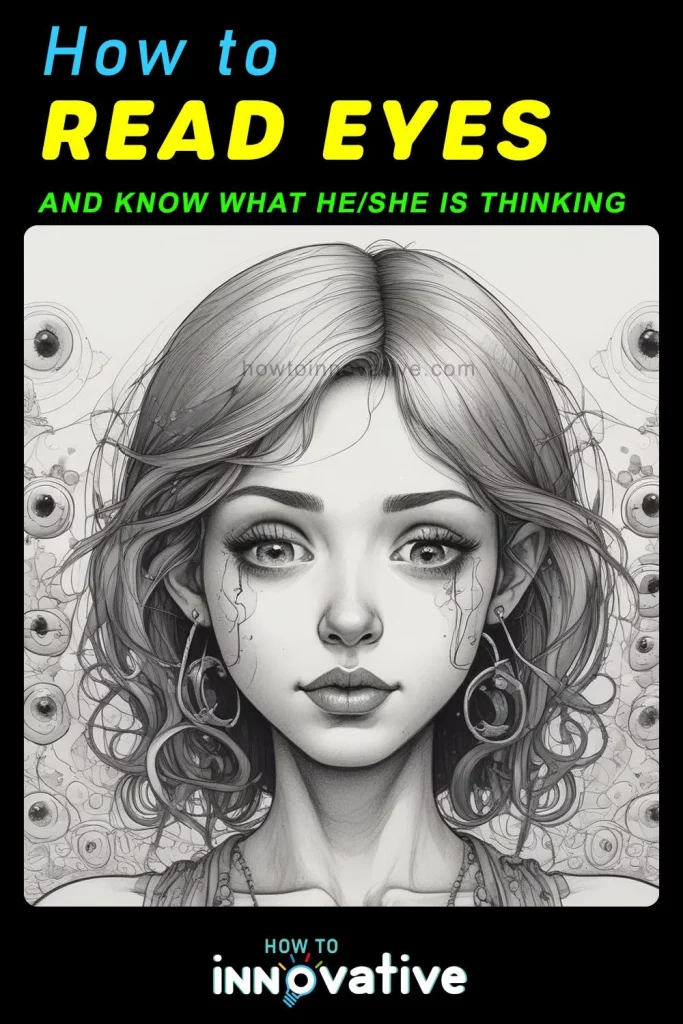
6. Looking Down and to the Right
This position is associated with internal dialogue. If someone is having a conversation with themselves or thinking deeply, you might see this eye movement.
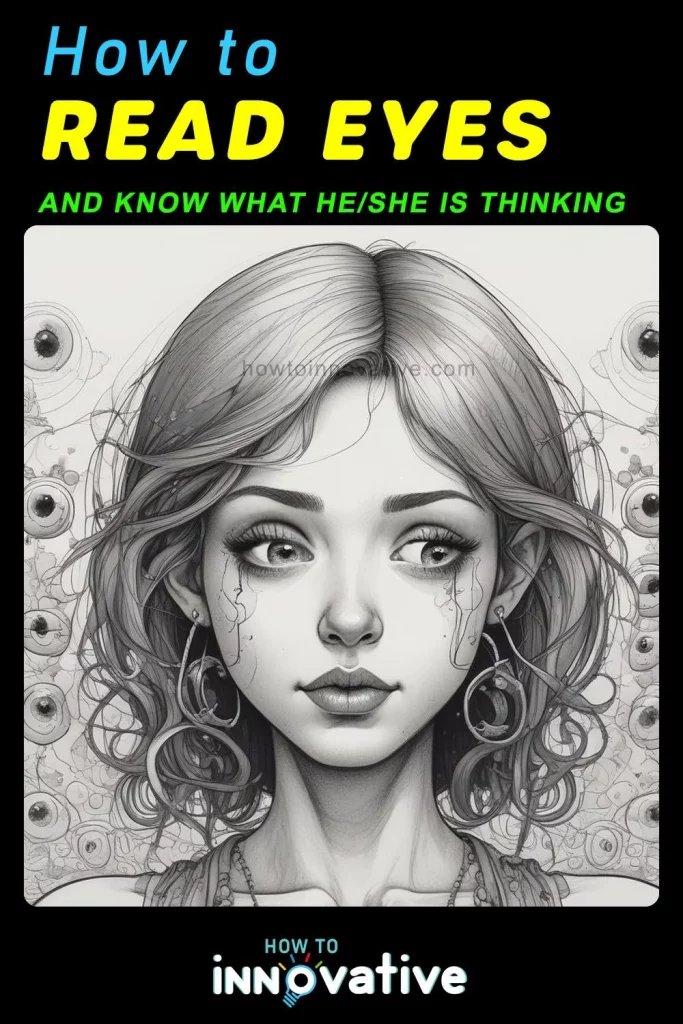
7. Looking Down and to the Left
Looking down and to the left often relates to accessing feelings or emotions. Someone might look this way when thinking about how they feel about something.
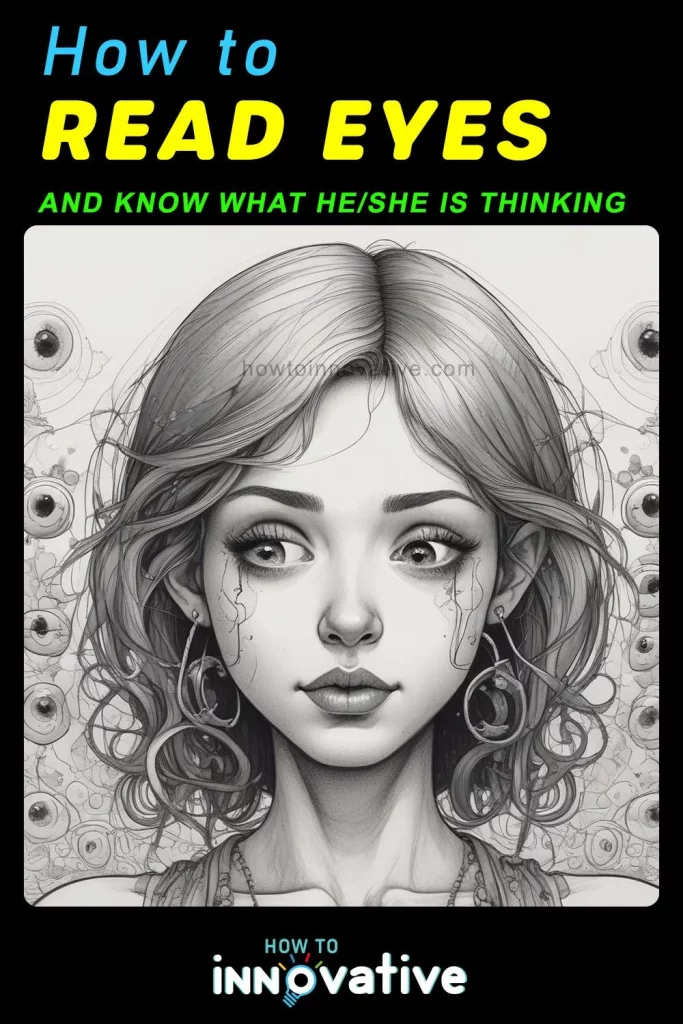
Eye Movements:
1. Rapid Blinking
This can indicate stress, discomfort, surprise, or anxiety. If someone blinks quickly after you ask them a question, they might be feeling pressured or unsure. If their eyelids are on a marathon, they might be anxious about something.
2. Prolonged Blinking Eyes
When someone blinks at you slowly, it’s kind of like they’re giving you a hug with their eyes. This can be a cue that they trust you and feel comfortable around you. They’re showing faith and affection.
3. Eye Darting
Quick eye movements can often indicate that someone is feeling uneasy or wants to get away from a situation. It’s almost as if their eyes are searching for a way out, trying to find an escape route!
When people feel uncomfortable, they might dart their eyes around the room, looking for anything that might help them leave or distract them from what’s making them feel awkward. It’s a way our bodies show we’re not happy or relaxed, even if we don’t say it out loud.
4. Dilated Pupils
Enlarged pupils can signify interest or attraction. If someone’s pupils dilate when talking to you, they might find you or the topic very engaging.
5. Direct Eye Contact
When someone looks straight into your eyes, they’re either super interested in what you’re saying or they’re challenging you. It’s all about context!
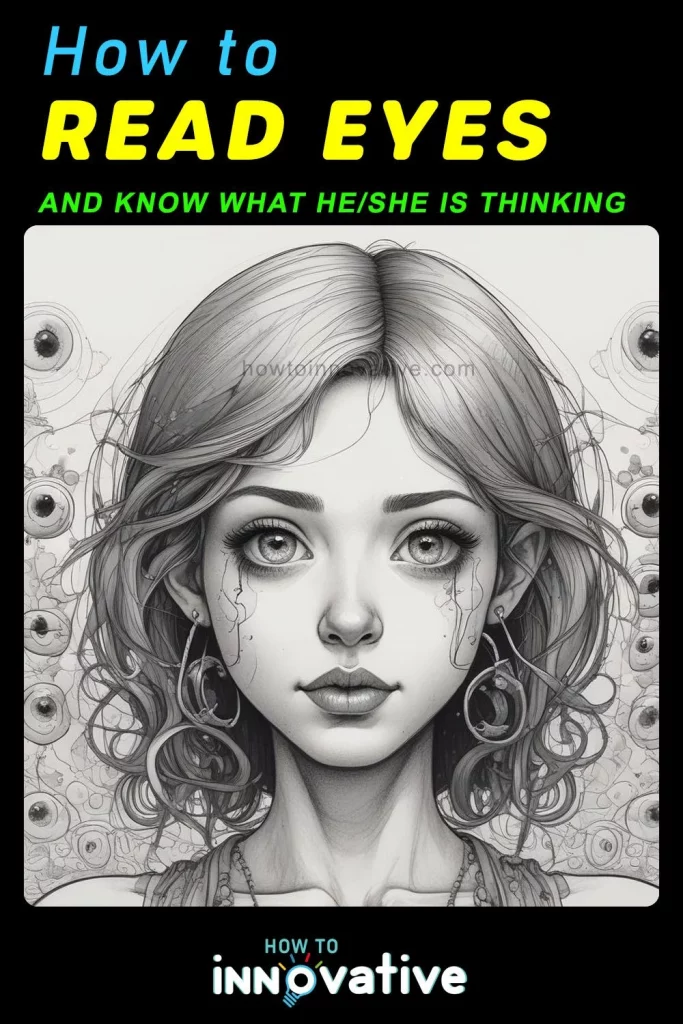
6. Avoiding Eye Contact
If someone avoids eye contact, they might be uncomfortable, lying, or hiding something. However, in some cultures, avoiding eye contact is a sign of respect.
7. Maintaining Eye Contact
Steady eye contact often shows confidence, interest, and honesty. But, be cautious—too much eye contact can come off as aggressive or intense.
8. Wide Eyes
When someone’s eyes are wide open, it can show that they’re really surprised or really scared. It’s like their eyes are trying to see everything all at once and gather as much information as they can. This reaction happens because their brain is telling them something important is going on, whether it’s something exciting or something frightening.
9. Squinting Eyes
When someone is squinting, it usually means they’re being skeptical or thinking hard about something. It’s like they’re narrowing their eyes to get a clearer view of the truth, trying to understand or figure out what’s going on.
It shows that they’re not just accepting things at face value but are looking deeper to find the real meaning. They’re trying to “focus” on the truth.
Conclusion
Understanding the human mind by reading eye movements is really interesting. It helps you understand people better and respond more appropriately to their unspoken thoughts and feelings.
Remember, while eyes can give away a lot, they’re just one piece of the body language puzzle. Always consider the whole picture before jumping to conclusions. That means, always consider the context and the person when interpreting eye language.
So, next time you’re in a conversation, pay attention to those peepers. You can even discover what the person in front of you is thinking without saying a word.

